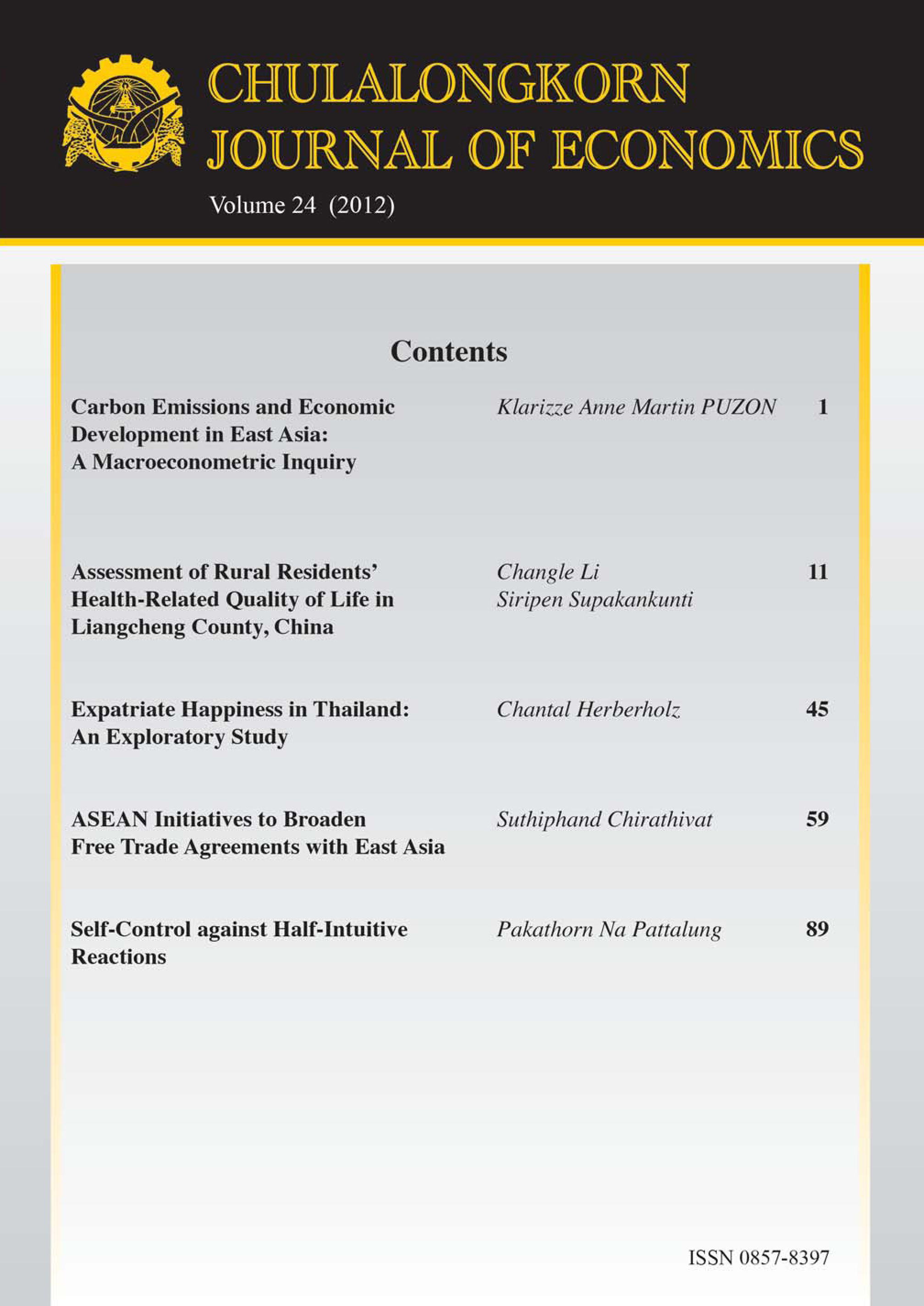Does Financial Development and Inflation Spur Economic Growth in Thailand?
Keywords:
Financial Development, Inflation, Growth, ARDL, Multivariate Causality, Impulse-response FunctionsAbstract
The paper empirically examines the short- and long-run dynamicsbetween financial development, inflation and economic growth d uring thepost-1997 financial crisis in Thailand using battery of time series techniques.Based on the ARDL [2, 2, 0, 0], the study documents a long-run equilibriumbetween finance depth, inflation and growth. Granger causality tests based onthe VECM further reveals that there is a bidirectional causality betweenfinance-growth in Thailand, the finding accords with “the feedbackhypothesis” or “bidirectional causality view”. Based on the VDCs and IRFs,the study discovers that the variations in the economic growth rely verymuch on its own innovations. To promote growth in the country, priorityshould be given for long run policies, i.e., the enhancement of existingfinancial institutions both in the banking sector and stock market and thepreservation of low rate of inflation.
Downloads
Published
How to Cite
Issue
Section
License
The submission of a manuscript implies that the paper is an original work and has not been published elsewhere. The author(s) authorize the journal to reproduce or distribute the paper in printed or other electronic forms.







